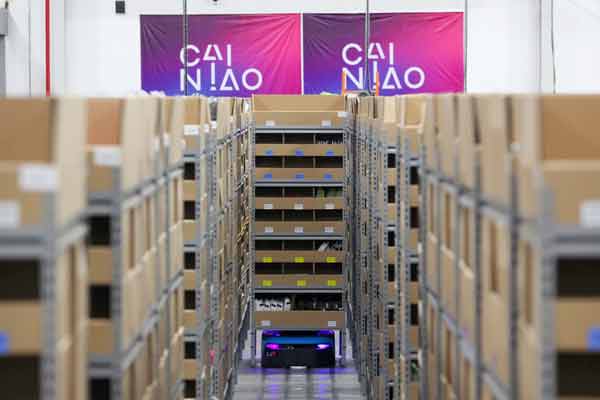
A Wifi-equipped, self-charging robot which is responsible for transporting goods is pictured at the quicktron of the logistics arm Cainiao Network of Chinese e-commerce giant Alibaba Group in Huiyang city, South China's Guangdong province, October 17,2017. [Photo/IC]
Cainiao Network Technology, a logistics affiliate of Alibaba Group, announced a suite of action plans on Wednesday to make the country's delivery service "green" by 2020.
In three years, Cainiao promised to replace all delivery sheets — covering over 40 billion parcels annually — into renewable ones, and promote the widespread adoption of electronic sheets.
By using real-time monitoring and algorithm-backed analysis, Cainiao plans to reduce average travel time by 30 percent to effectively lower costs.
Such efforts require a combined effort from Alibaba's various business units, Cainiao president Wan Lin said.
Tmall, Alibaba's business-to-customer site, will upgrade all packaging materials into environmentally friendly ones by 2020, while customer-to-customer service Taobao and secondhand market Xian Yu will adopt green bags in their on-demand services across 200 cities.
By 2020, Alibaba also pledged to help one million mom-and-pop shops increase zero paper cases for goods storage and transportation, banking on an LST system which will upgrade these smaller merchants with big data analysis to better manage inventory.
On the dining front, Ele.me is expected to launch a green alliance on food delivery services, and fresh food chain Hema will roll out more efficient logistics measures, without specifying details.
A document released by the State Post Bureau last year has made clear that by 2020, half of all external packages should be biodegradable, 90 percent of bills electronic, and packing material for each parcel should be cut by 10 percent.


